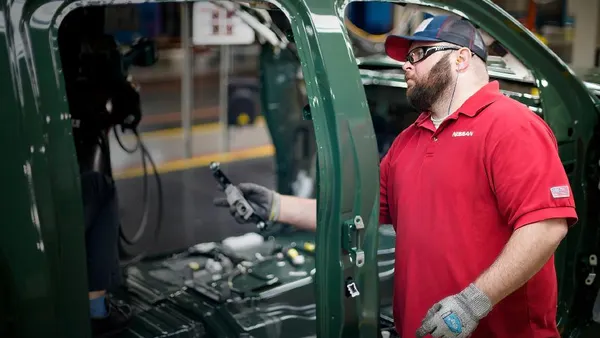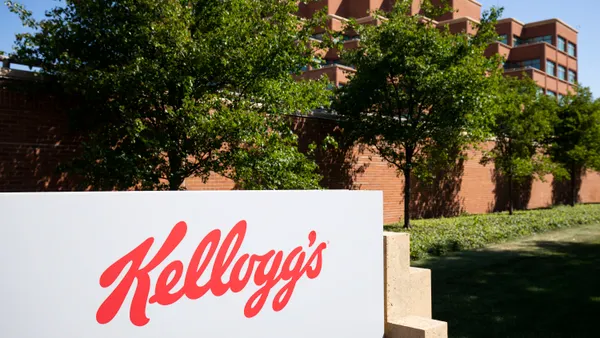Dive Brief:
-
Some of the largest U.S. food and beverage firms are making progress in addressing forced labor in their supply chains, but a new report from KnowTheChain suggests that a lot more work needs to be done to ensure products are made ethically.
-
The group's second report since 2016 analyzed 38 global food and beverage companies against seven benchmark themes: commitment and governance; traceability and risk assessment; purchasing practices; recruitment; worker voice; monitoring; and remedy. Unilever again scored the highest (69 of a possible 100), followed by Kellogg, which took the second place position with a 66 score. Then came Coca-Cola, Tesco, Nestlé, Walmart and PepsiCo. Near the bottom were Monster Beverage, with a 4 ranking, Hormel Foods with 10, Tyson Foods with 12 and Conagra Brands with 18.
-
"Forced labor remains a major problem in the production of popular food and beverage products," Kilian Moote, project director for KnowTheChain, said in a release. "The isolation of workers on farms or boats increases their risk to exploitation and leads to little oversight to ensure the food we eat is produced ethically."
Dive Insight:
KnowTheChain pointed out food and beverage industries are more susceptible to forced labor than others because of their global and agricultural-based supply chains. Unless a company stays vigilant, it may not know that a supplier of one of its ingredients in another part of the world uses forced or child labor, the group said.
Forced labor is widespread across all supply chains, according to KnowTheChain. Research from the International Labour Organization shows that nearly 25 million people around the world are victims, generating $150 billion in illegal profits annually. Besides the individual abuse that occurs, companies are on the hook to keep their supply chains transparent and ethically responsible — or run the risk of attracting criticism from consumers, investors, media outlets and governments. For example, Monster Beverage faced a shareholder resolution earlier this year asking the company to address the issue, the group noted.
Unilever and Kellogg received relatively high scores in the latest benchmark report due to their disclosure of efforts to address migrant worker exploitation, the report said. For example, Unilever noted that it worked with Saudi Arabian and Malaysian suppliers to make sure migrant workers have their passports returned, and it also reports on efforts in Indian and Kenyan tea supply chains to help workers understand their rights and how to bring up grievances.
The disclosure factor focused on risks in just a few commodities such as palm oil, which isn't surprising since human rights and environmental abuses are well-known on palm oil plantations. Other vulnerable commodities mentioned in the report are cattle from Brazil, sugarcane from Bolivia and wheat from Pakistan. Still, KnowTheChain said in its release that companies "must do more to protect vulnerable workers across all commodities."
The group made several recommendations to help food and beverage companies start improving their track records when it comes to forced labor. They are encouraged to address the risks of migrant worker exploitation and other vulnerable groups such as women and small farmers; go beyond commodities where labor abuses attract the most media attention and assess and address the risks across commodities; engage with and empower workers to enforce their rights; and provide remedies in situations where abuses occur.
Companies could have a lot to lose if they ignore these types of reports, since consumers prefer transparent and mission-driven manufacturers that reflect their values. Studies show a majority of shoppers want retailers to reveal how they address labor, environment and animal welfare issues, and nearly all would pay more for transparent products. Making improvements on how these matters are handled is one way for food and beverage firms to win consumer trust — and their business.













